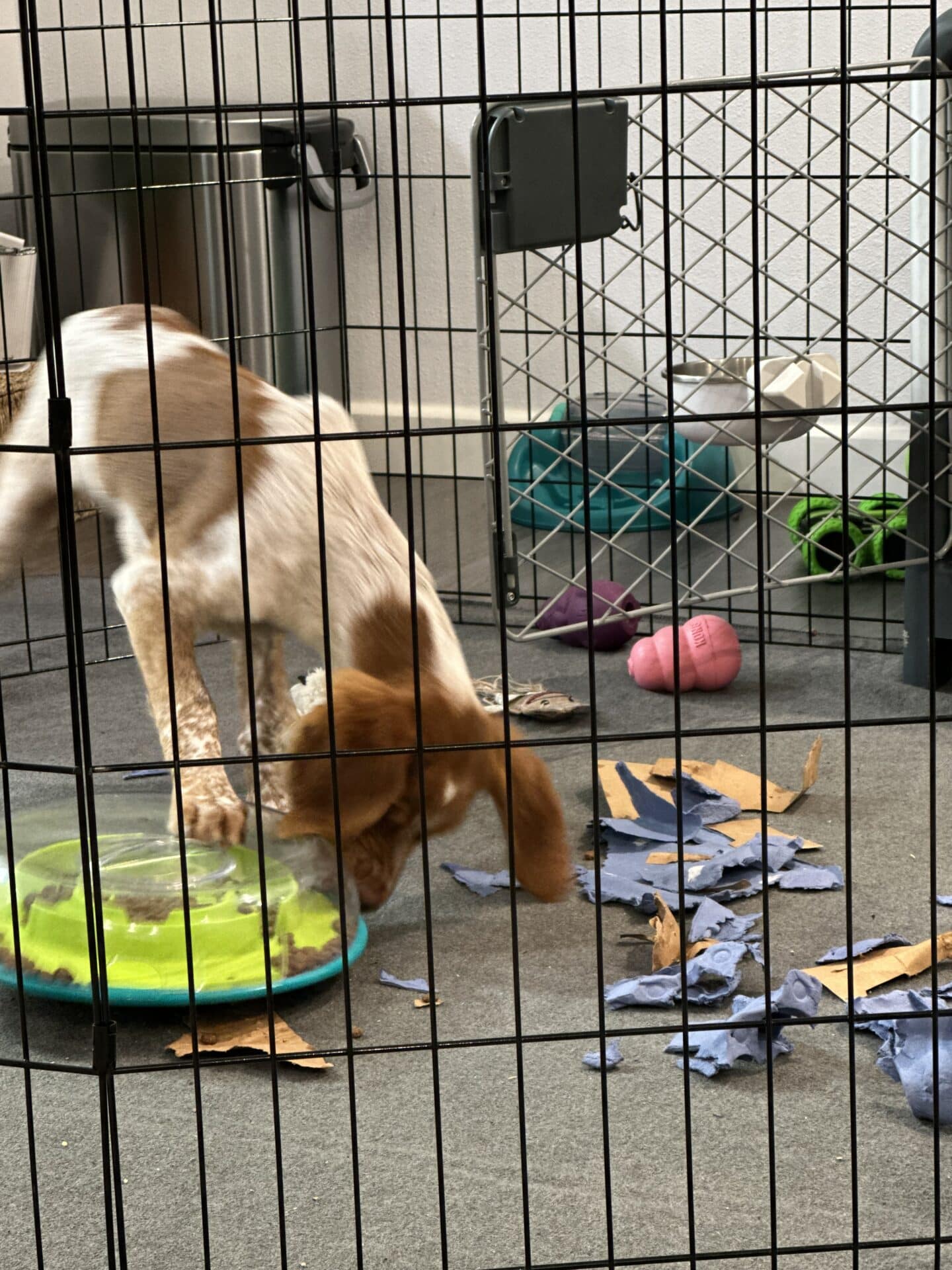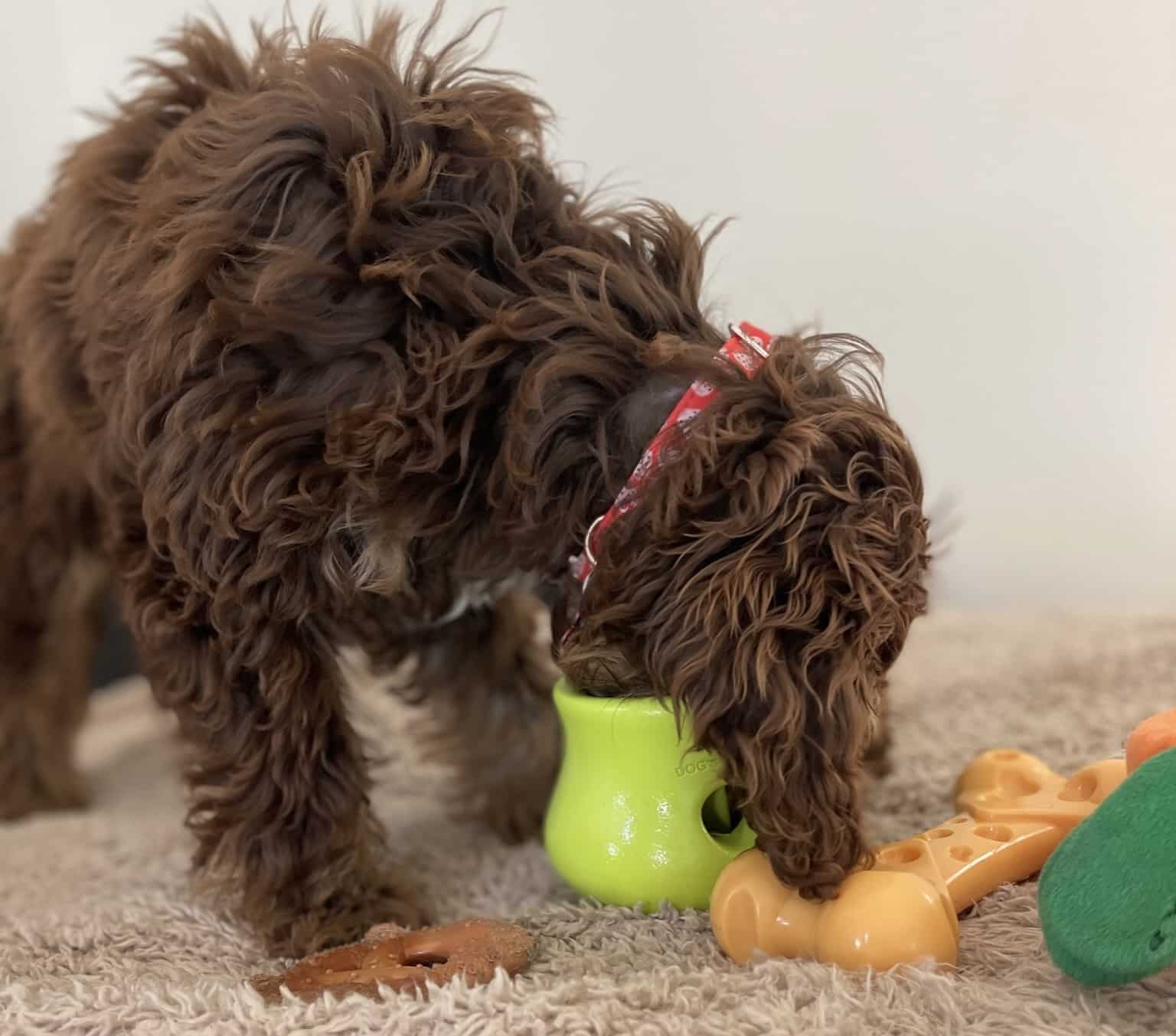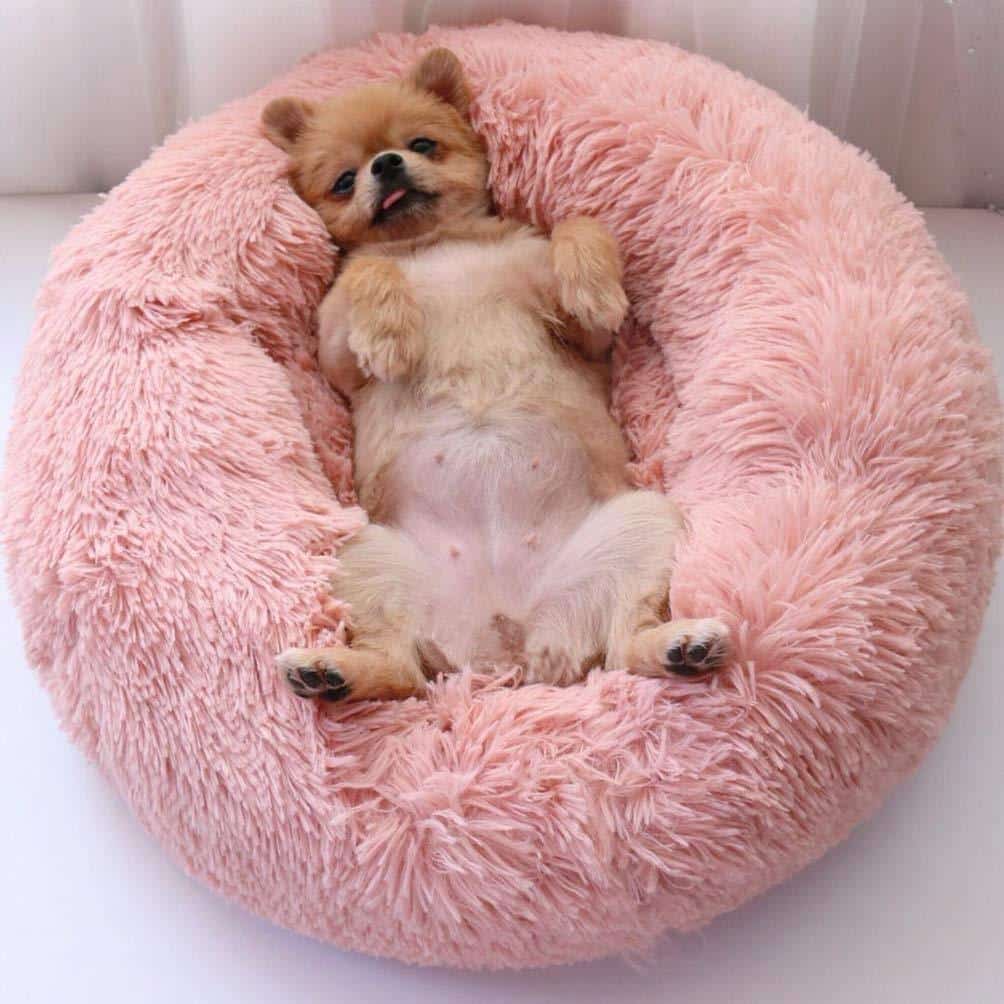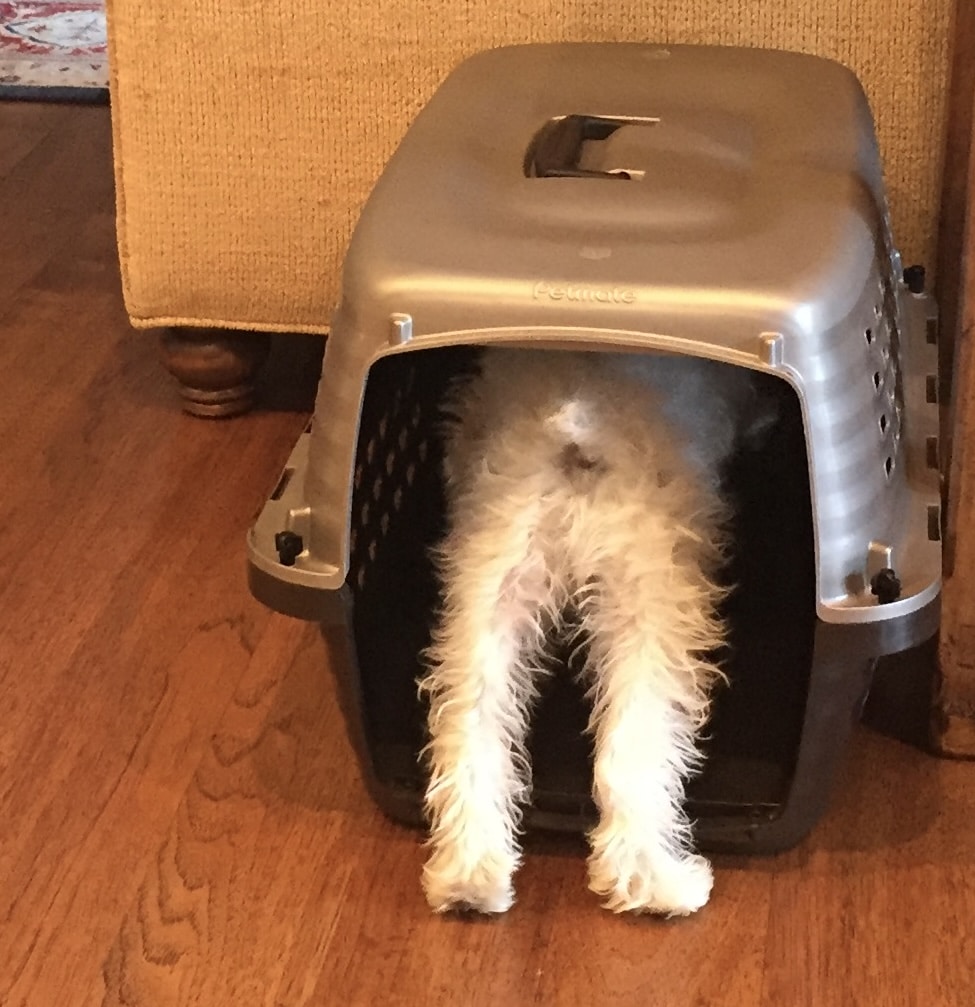I read a lot of posts on social media from puppy owners distraught because their puppy barks at strangers, chewed on their couch, eliminated in their crate (“I was only gone 4 hours!”), or they whine when left in their crate or pen (“I bought so many toys! What’s wrong with her?”). In most cases they’ve already attended a group puppy class and are unhappy that didn’t solve every problem.
I have news for all puppy owners: Puppies need your time and attention, and they desperately wish humans would notice when they’re telling us they’re afraid or uncomfortable.
Dog training cannot replace the importance of your relationship with your puppy. The bond between you and the ways you choose to interact with your puppy do that.
You’re building a relationship with your puppy every time you interact with them. We either build trust with our actions or we teach our puppy to not trust us.

Ways you can fulfill your puppy’s needs on a deeper level than “training” will ever achieve:
- Provide daily enrichment, whole foods, high-quality treats and training rewards (single ingredient, freeze-dried animal proteins highly recommended) and age-appropriate chews.

- Provide appropriately-sized nest beds in every room your puppy spends time in. Bigger is the opposite of better, when it comes to nest beds. A perfect nest bed fit hugs your puppy when they’re in it.

How to be trustworthy, from your puppy’s perspective:
- Learn to read your puppy’s body language and respond appropriately to their communication. Feeling truly “heard” is one of the most self-affirming experiences for any sentient being.
- Avoid “corrections” (including “no!”) as a substitute for teaching your puppy. Invest the time needed to show them what you want and reward generously, when behavior you want to repeat happens.
- Don’t pick your puppy up without them being aware it’s happening. Better yet, give them a cue before reaching for them and allow them to decline (they look away, move away from you, suddenly begin scratching or biting themselves, or they sneeze), whenever possible.
- Teach your puppy to walk into their pen or crate on their own steam. A trail of high-value treats is a good place to start. Placing them in there (forced entry) creates resistance.

- Never ignore nor minimize your puppy’s fear.
- Never leave your puppy to “cry it out.”
- Avoid taking things from your puppy’s mouth. Trade for everything.
- Never trick your puppy. Faking a ball throw or sneaking out of the house might seem funny or convenient. Both can obliterate trust between you and your puppy.
Dee Green has been a professional dog trainer and canine behavior consultant for more than 20 years. She specializes in puppies up to 18 months, and fearful, anxious and reactive dogs of all ages
©️2024 Dee Green, all rights reserved
